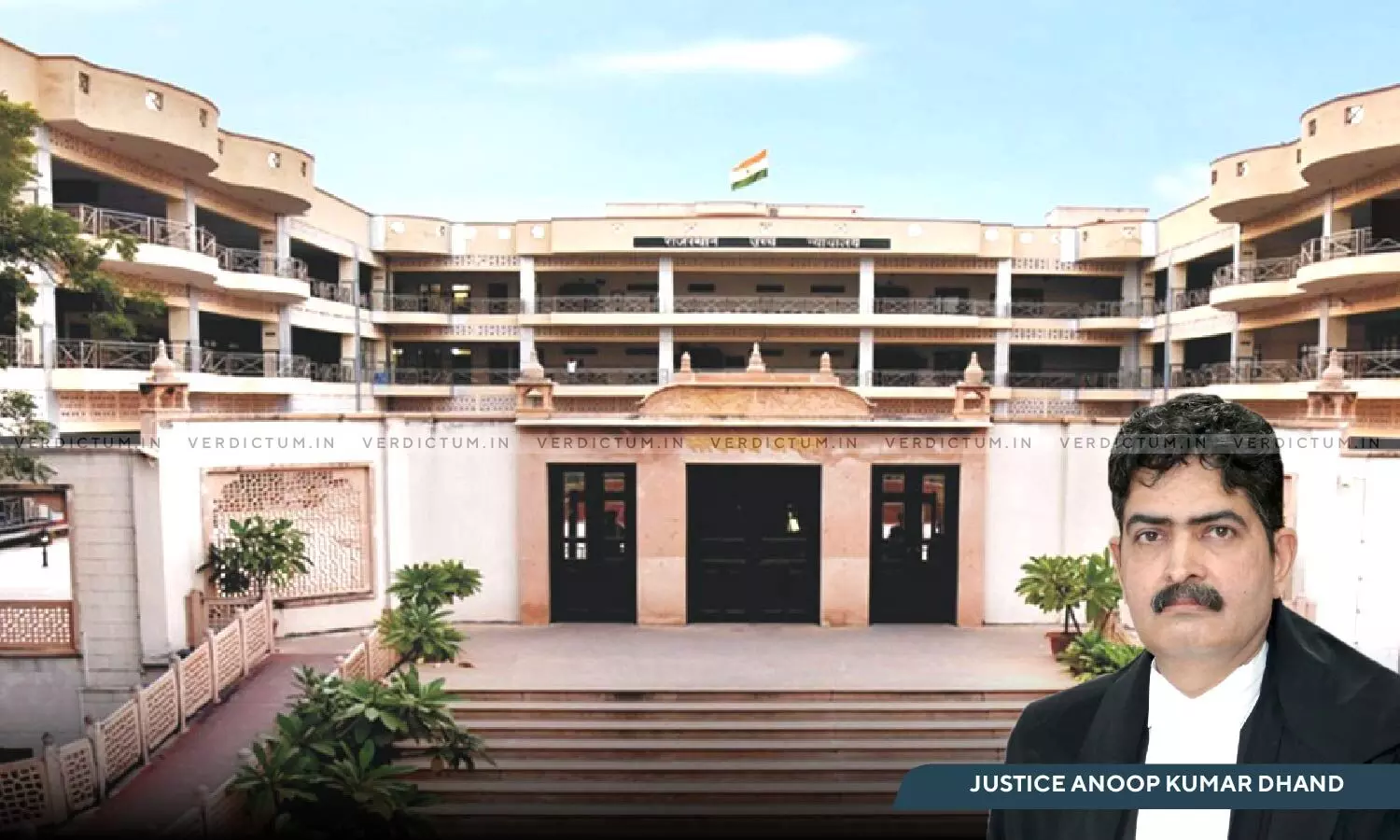
Women's Right Should Not Be Denied On Fanciful Assumptions Of What Work They Could Do & Could Not Do: Rajasthan HC
 |
|The Rajasthan High Court observed that non-consideration of the women teachers for promotion is violative of their fundamental rights, and it is the mandate of the Stare to not discriminate against any citizen on grounds of sex.
The Bench of Justice Anoop Kumar Dhand held, “The mandate to the State, that it shall not discriminate against any citizen on grounds of sex and would ensure equality of opportunity in matters of public employment, is one of the most important fundamental rule that calls for strict observance…There would be no scope whatever to justify differentiating between the male and female sexes in the matter of appointment and promotion. The right of women should not be denied on fanciful assumptions of what work the woman could do and could not do… At a time when ‘beti padhao, beti bachao’ is the goal, such an action of the respondents could neither be supported in law nor on facts.”
Advocate HR Kumawat appeared for the Petitioners and Dy. GC Namita Parihar appeared for the Respondents.
A writ petition was filed alleging gross discrimination between male and female teachers. It was the case of the Petitioners that the male teachers appointed on the post of Teacher Grade III up to the year 1998 were kept in the seniority list for promotion to the post of Teacher Gr. II for the vacancy in the years 2008-09 and 2009-10, while the female teachers appointed only up to the year 1986 were kept in the seniority list for promotion to the same post of Teacher Gr. II against the vacancy for the year 2009-2010 on the grounds that the number of girls’ schools in comparison to the boys’ schools was less.
The petitioner sought directions against the respondents to include the name of the petitioners in the list of eligible candidates for promotion to the post of Senior Teacher Grade-II against the vacancy for the years 2008-2009 and 2009-2010 and consider their case for promotion as per their qualification and seniority with all consequential benefits.
The Court said that in India, discrimination on the basis of sex has always been considered an infringement of fundamental rights, as provided under Part III of the Constitution of India. It added that throughout history, women have played a vital role in nation-building, yet they have often faced barriers to equal participation in socio-economic activities. Gender bias has impacted many aspects of their lives. To address this, the Constitution of India takes significant steps to ensure gender justice as a fundamental principle.
The Court referred to the judgments of the Apex Court in C.B Muthamma v. Union of India (1979 SC) and Anuj Garg & Ors. v. Hotel Association of India & Ors. (2008 SC).
The Court observed, “Though, on the face of it, the rule makes a classification based on the demand of teachers belonging to a particular gender, the impact of that classification falls on female teachers, and thus, in effect, the rule entrenches social hierarchy by reaffirming existing inequalities between men and women. The above classification unjustly implies that only male teachers are competent enough to teach in boys’ school, thus treating female teachers as a sub- standard class in comparison to their counterpart.”
It reiterated that Article 14 indicates that to be a reasonable classification under Article 14 of the Constitution, two criteria must be met: (i) the classification must be founded on an intelligible differentia;-and (ii) the differentia must have a rational nexus to the objective sought to be achieved by the legislation. Further, there must be a causal connection between the basis of classification and the object of the statute. If the object of the classification is illogical, unfair and unjust, the classification will be unreasonable.
The Court held, “the impact of the rule on an already disadvantaged or vulnerable class (here, women) is irrelevant to the traditional formulation of the classification test, which only requires an intelligible differentia (here, between male teachers appointed till 1998 and female teachers appointed only till 1986) having a rational nexus to the objective of the classification (here, greater demand of male teachers as a result of more number of boys school). Thus, the traditional classification test fails to recognise that the rule, though facially neutral and innocuous and not based on sex, is in effect entrenching differences between men and women by granting a greater proportion of promotions of male teachers, on the basis of archaic gender stereotype rather than any evidence of better educational outcomes. What matters is the effect of law on the exercise of fundamental rights, which calls the courts to step in and remedy the violation.”
The Court concluded that non-consideration of the petitioners for promotion to the post of Teacher Grade II is violative of their fundamental rights under Articles 14, 15, 16 and 21 of the Constitution. It said that the competent authority and the State had committed a serious error of law in determining the seniority list merely on the basis of the greater number of boys’ schools.
Accordingly, the Court allowed the writ petition and directed the Respondents to consider the case not only of the petitioners but also of all the similarly situated female teachers appointed as Teacher Gr. III up to the year 1998 for their promotion to the post of Senior Teacher Gr. II for the vacancies of the year 2008-09 and 2009-10 and grant them all consequential benefits.
Cause Title: Smt Tara Agrawal and Ors. v. The State of Rajasthan and Ors.
Appearances:
Petitioners: Advocate HR Kumawat
Respondents: Dy. GC Namita Parihar